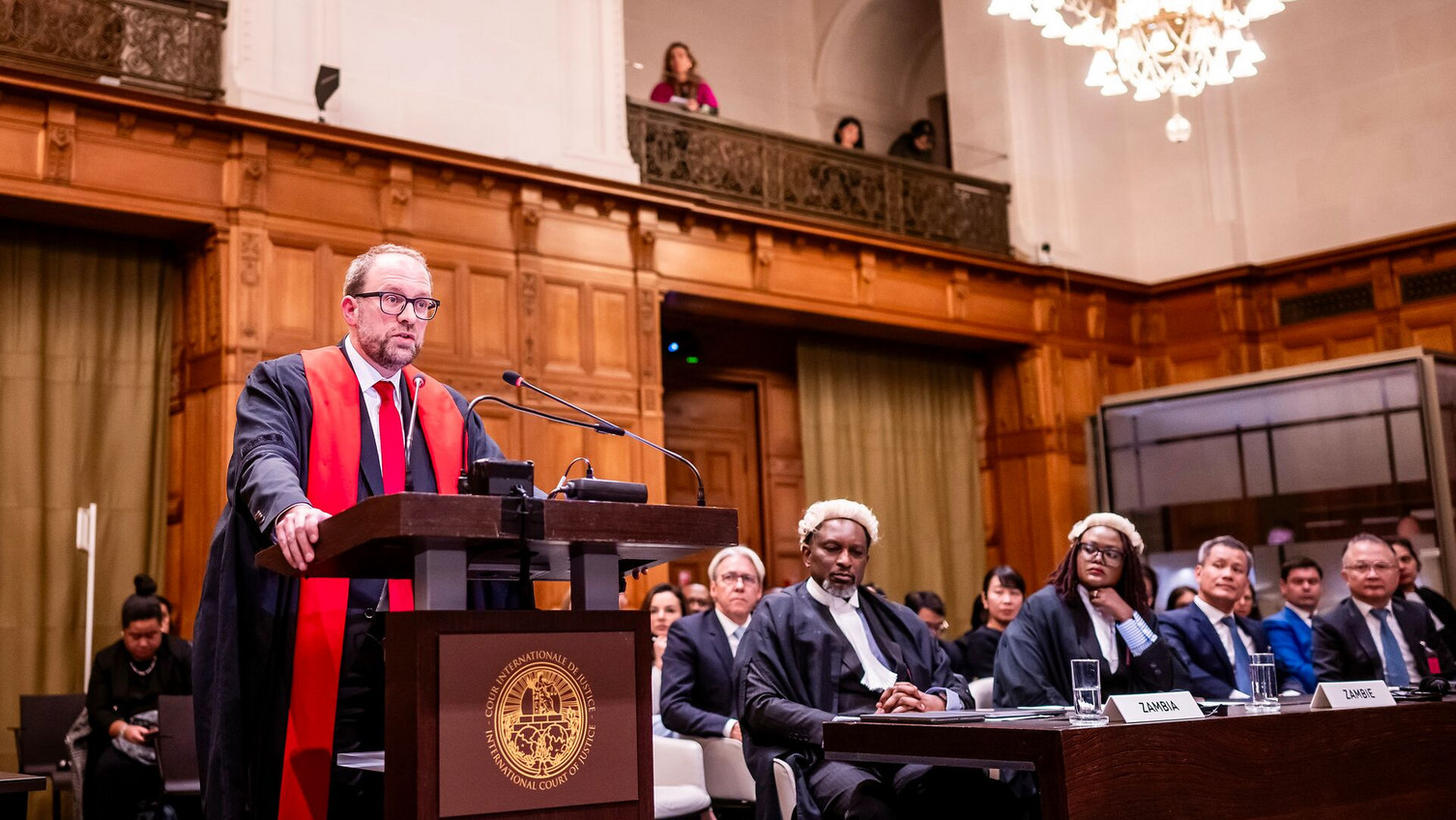Prof. Dr. Christian Tams represented Zambia at the International Court of Justice
2025-02-11 Initiated by youth environmental organizations from the Global South, the UN General Assembly requested an advisory opinion from the International Court of Justice in The Hague on the international legal obligation to protect the climate. Around 90 states and 15 international organizations presented their views.
For the first time, the Victoria Falls have dried up. The UNESCO World Heritage Site is located on the border between Zimbabwe and Zambia. Prof. Dr. Christian Tams represented the landlocked southern African country at its hearing before the International Court of Justice. Zambia's team used images in its arguments to illustrate how climate change is already shaping everyday life: “The International Court of Justice heard the arguments of every state and organization. Therefore, time was short and the arguments had to be comprehensible and compelling,” explains the professor of public international law and dispute resolution at Leuphana. He is also professor of public international law at the University of Glasgow, where he heads the Glasgow Centre for International Law and Security.
The core obligations for states with regard to climate protection were negotiated during the two-week proceedings. The International Court of Justice will publish its advisory opinion in the course of 2025. Although its statements are formally only of an advisory nature, they shape international law.
For the first time in proceedings of this kind, a particularly large number of countries from the Global South were represented, with a total of 40 states from Africa and Asia, as well as many Pacific Island States. “These are the countries that are often hardest hit by climate change,” explains Christian Tams.
The Pacific Island Forum and Pacific Youth Activists have proposed the 2022 report to the UN General Assembly. The leading state was Vanuatu. The island state in the South Pacific is directly affected by rising sea levels: “Vanuatu and other island states are in danger of sinking into the sea,” says Christian Tams: “For them, climate change is a dramatic reality”.

